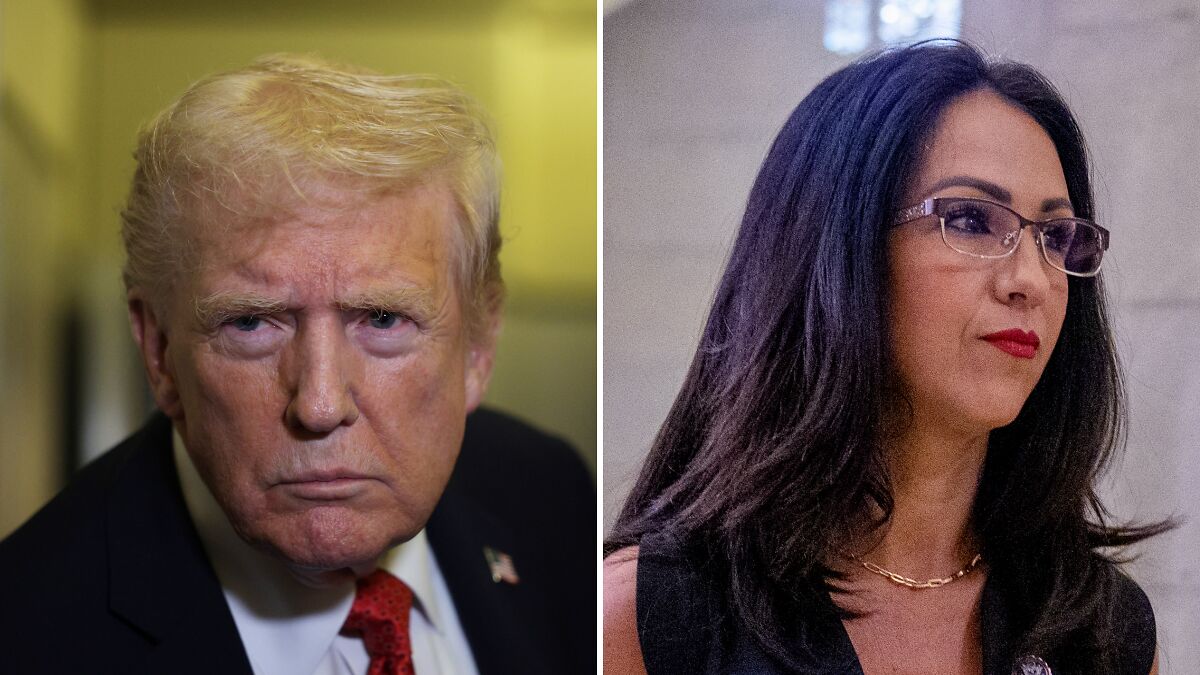
Trump Contacted Lauren Boebert Amid Rising Pressure Over Epstein Files Release: Report
As the tally neared the 218 signatures required to force a House vote on releasing the Epstein files, President Donald Trump and his advisers scrambled to contain the fallout.
The push in the U.S. House of Representatives to force a vote to release the Department of Justice’s Jeffrey Epstein files has been underway for several months.
- Trump personally called Rep. Lauren Boebert to pressure her to withdraw support for releasing the Epstein files, but she refused.
- Rep. Adelita Grijalva's swearing-in gave the petition 218 signatures, forcing a House vote on the Epstein files release.
- Attorney General, Deputy AG, and FBI Director met with Boebert, but she stayed committed to transparency and the petition.
- Newly released Epstein emails reference Trump, sparking controversy and White House denials of any wrongdoing.
- Speaker Mike Johnson will bring the Epstein files release vote to the House floor next week, despite prior delays.
On Tuesday, Trump personally called Rep. Lauren Boebert as part of an effort to convince her to withdraw support for the measure, according to reporting from The New York Times.
The Trump administration tried to convince Lauren Boebert to withdraw her vote to release the Epstein files
Image credits: Andrew Harnik/Getty Images
The Times reported that Trump spoke with Boebert by phone early Tuesday morning, a day before Rep. Adelita Grijalva was sworn into Congress.
Grijalva’s addition to the House provided the 218th signature needed to force a vote on releasing the files related to the disgraced financier, who died in federal custody in 2019 while awaiting trial on sex trafficking charges.
“Mr. Trump connected with Ms. Boebert by phone early Tuesday morning, according to two people familiar with the call, a day before Speaker Mike Johnson was set to finally swear in a Democrat, Representative Adelita Grijalva of Arizona, who was expected to provide the 218th signature needed to force the Epstein vote,” The New York Timesreported.
Image credits: Alex Wong/Getty Images
The publication added that Trump was also trying to get a hold of Rep. Nancy Mace, who had also signed the discharge petition to compel the vote.
Boebert and Mace joined Reps. Thomas Massie and Marjorie Taylor Greene are the only Republicans siding with Democrats in support of the petition.
Massie and Ro Khanna have been leading the bipartisan effort to force the DOJ to release all Epstein-related records for months now.
The Massie-Khanna bill, formerly known as the Epstein Files Transparency Act, would require the DOJ to “publicly disclose all unclassified records, documents, communications, and investigative materials in its possession that relate to Epstein.”
Image credits: Bill Clark/ Getty Images
On Wednesday morning, Attorney General Pam Bondi, Deputy Attorney General Todd Blanche, and FBI Director Kash Patel met with Boebert at the White House to discuss the measure in person, ABC News and NYT reported.
Reporters from NOTUS and The New York Times both noted that Trump and his aides had only a few hours to convince a Republican to withdraw before the vote count became final.
Despite the meeting and Trump’s call, Boebert did not withdraw her support. On social media, she said she appreciated the White House’s willingness to meet and that she remained “committed to ensuring transparency for the American people.”
On Wednesday, after Grijalva took office and signed the petition, the list of supporters was locked, preventing anyone from removing their name from it.
On Wednesday, the House had 218 signatures needed for the bill
Image credits: Heather Diehl/Getty Images
Later yesterday, Speaker of the House Mike Johnson announced that the House would hold a full vote next week on releasing the files.
Johnson, who had earlier called for the release of the Epstein files himself, recently made several attempts to avoid a vote on the matter, including calling for an early adjournment of the House in July to delay it.
The push to release the files came amid new disclosures consisting of a cache of Epstein’s emails that referenced Trump and other public figures, released by the House Oversight Committee.
Image credits: Joe Schildhorn/Getty Images
The emails included communications between Epstein, Ghislaine Maxwell, and journalist and Trump biographer Michael Wolff.
In a 2011 email, Epstein wrote to Maxwell, his partner and convicted child sex offender, “I want you to realize that that dog that hasn’t barked is trump.. virginia [sic] spent hours at my house with him, he has never once been mentioned. police chief. etc. im 75% there.”
Image credits: House Oversight Committee
Democrats redacted the name and referred to Virginia as “unnamed victim” instead.
Virginia Giuffre was one of Epstein’s most prominent accusers, alleging that she was sexually abused by him and trafficked to other powerful men.
However, Giuffre has not accused Trump of any wrongdoing. The White House said in a statement that Giuffre “repeatedly said President Trump was not involved in any wrongdoing whatsoever and ‘couldn’t have been friendlier’ to her in their limited interactions.”
Epstein also wrote to Kathryn Ruemmler, a former Obama White House lawyer
Image credits: Rasid Necati Aslim/Getty Images
Giuffre died by suicide earlier this year.
In another exchange in 2018, Epstein wrote to Kathryn Ruemmler, a former Obama White House lawyer.
“You see, I know how dirty donald is. My guess is that non lawyers ny biz people have no idea. What it means to have your fixer flip,” Epstein wrote, in response to news about Trump’s former lawyer pleading guilty to violating campaign finances.
In a third email, Epstein said Trump knew about the girls: “Trump said he asked me to resign, never a member ever,” Epstein wrote in a 2019 email to Michael Wolff. “[O]f course he knew about the girls as he asked ghislaine to stop.”
Image credits: Davidoff Studios/Getty Images
“The Democrats selectively leaked emails to the liberal media to create a fake narrative to smear President Trump,” White House press secretary Karoline Leavitt said in a statement.
“The ‘unnamed victim’ referenced in these emails is the late Virginia Giuffre, who repeatedly said President Trump was not involved in any wrongdoing whatsoever and ‘couldn’t have been friendlier’ to her in their limited interactions.”
The never-before-seen Epstein emails released by Oversight Dems raise serious questions about why the White House continues to cover up the Epstein files.
This cannot go on. It’s time the American people got the truth. It’s time to release the files. pic.twitter.com/caTK4DS40B
— Oversight Dems (@OversightDems) November 12, 2025
Grijalva’s swearing-in ceremony capped a tense week on Capitol Hill. She was sworn in seven weeks after she won a special election in Arizona, for which she slammed Johnson, calling it “unprecedented,” “undemocratic,” “unconstitutional,” and “illegal.”
Rep. Grijalva claimed her swearing-in was postponed so that Johnson could pressure Republicans to withdraw their signatures from the vote
Image credits: Andrew Harnik/Getty Images
She told MSNBC’s The Weeknight on Tuesday that she believed her swearing-in had been delayed “to give Speaker Johnson more time in order to try to convince one of those four Republicans to take their name off.”
Trump, who had been close friends with Epstein in the late 1990s and early 200s, has denied any wrongdoing or involvement in Epstein’s criminal activities.
Under House rules, once a discharge petition reaches the required 218 signatures, the House is obligated to act, though a minimum of seven legislative days must pass before a vote can be held.
Image credits: Adam Gray/Getty Images
Johnson said Wednesday that he plans to accelerate the process and bring the Epstein measure to the floor next week.
While it is expected to pass the House, the bill would still need to clear the GOP-controlled Senate and be signed by the president to become law.


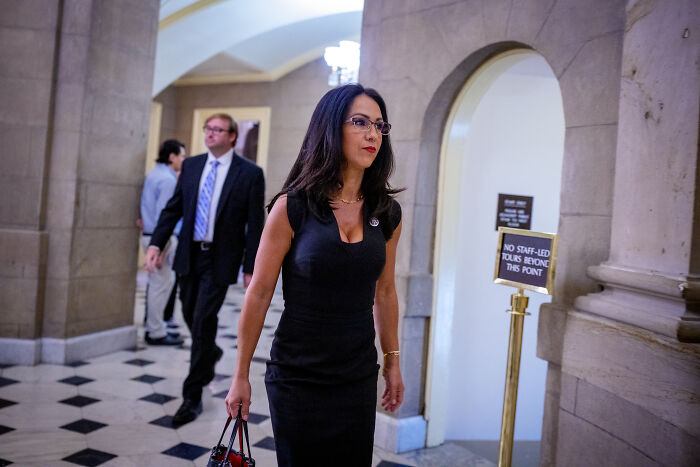
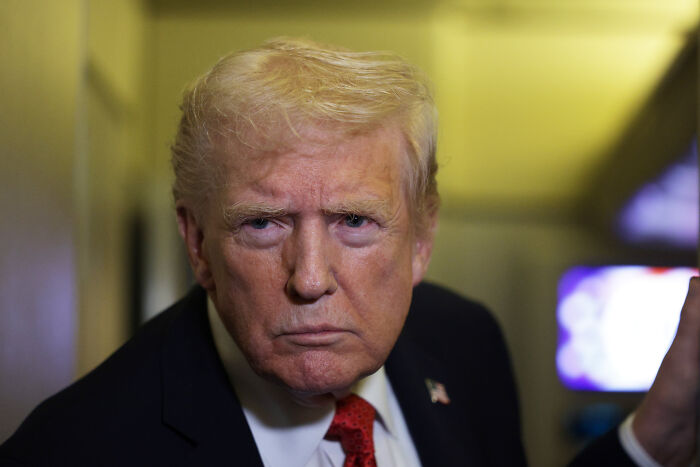
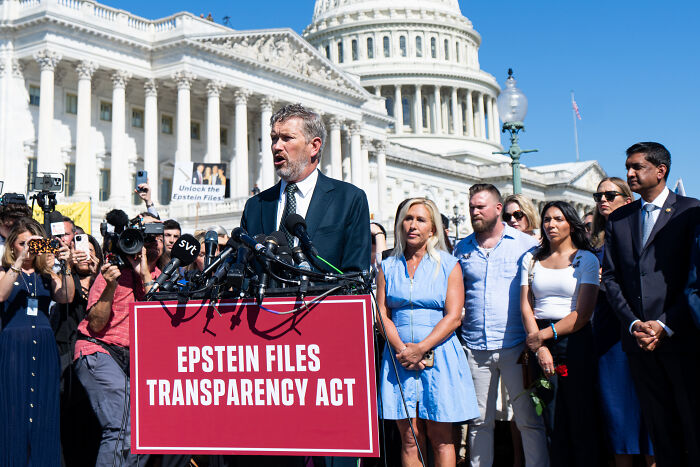
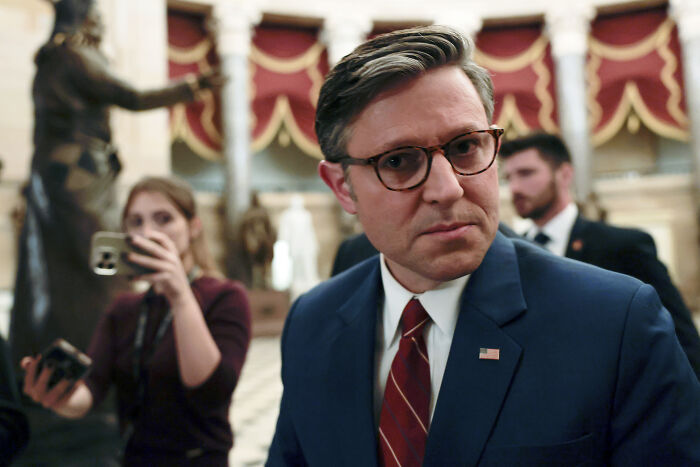
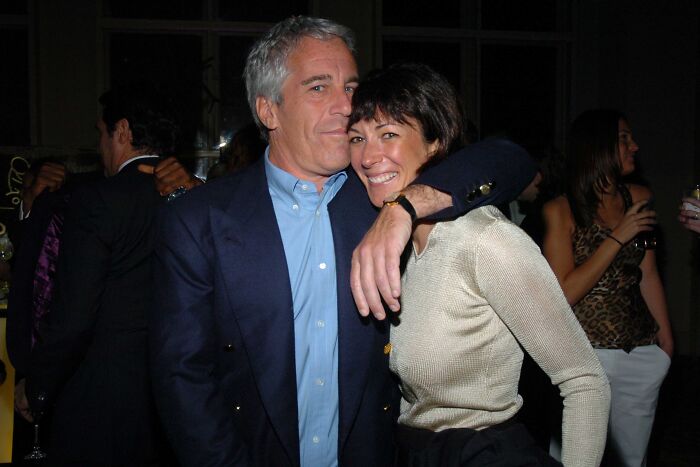
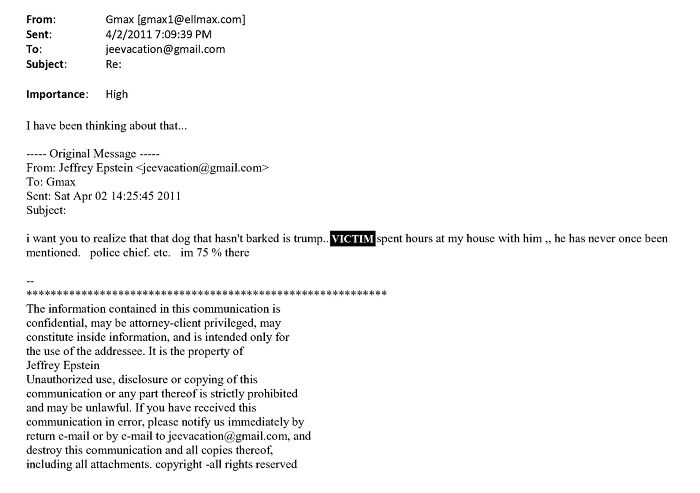
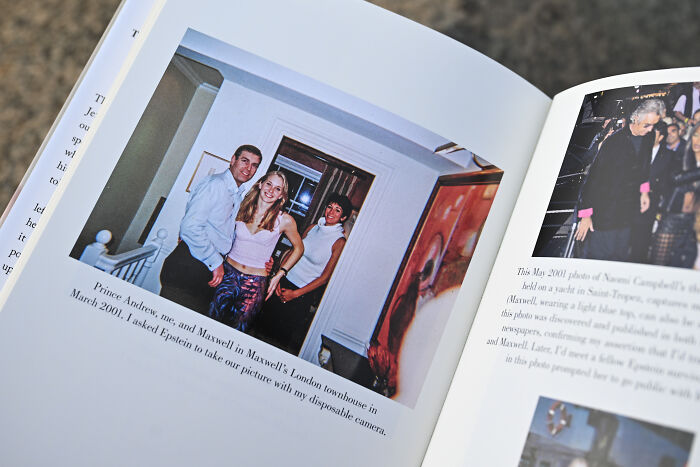
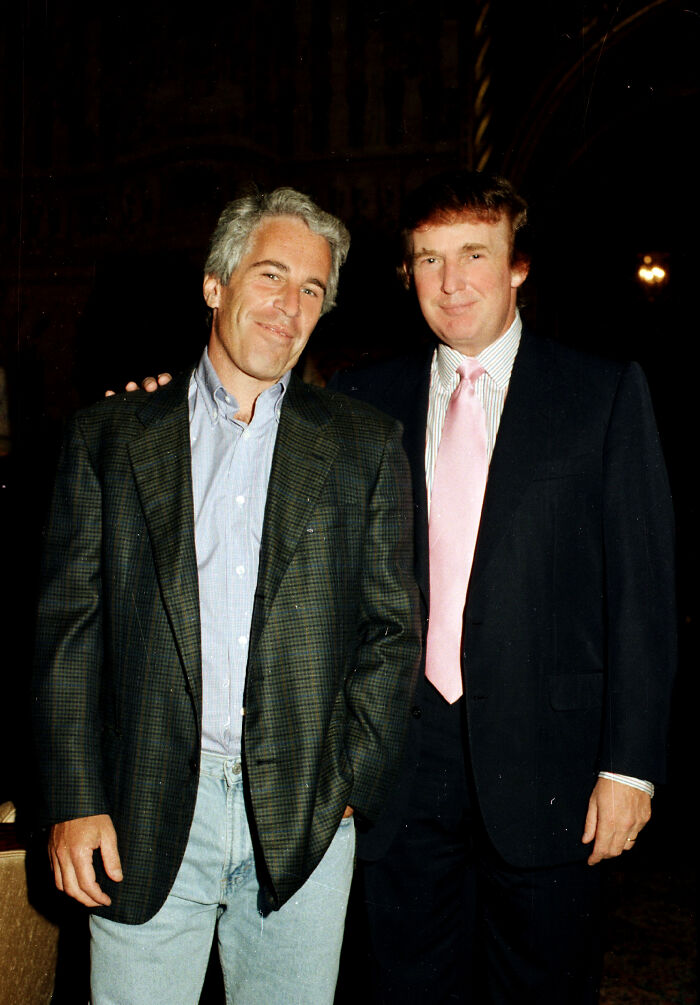

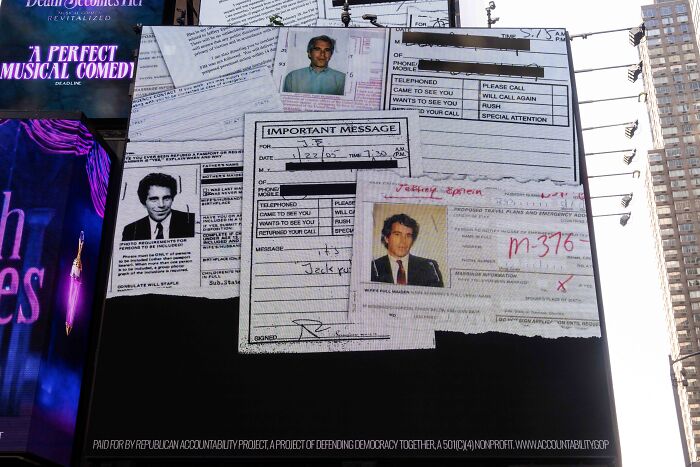



16
0